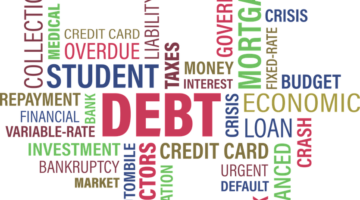The Consumer Financial Protection Bureau (CFPB) has sued the student loan servicer Pennsylvania Higher Education Assistance Agency (PHEAA), which does business as American Education Services (AES), for illegally collecting on student loans that have been discharged in bankruptcy and sending false information about consumers to credit reporting companies. The CFPB’s lawsuit asks the court to order PHEAA to stop its illegal conduct, provide redress to borrowers, and pay a civil penalty.As of December 2023, PHEAA serviced a portfolio of studentRead more
A History of Discharging Student Loans in Bankruptcy
From 1978 to 1990 all student loans owed for five years or more were dischargeable in bankruptcy. Student loans owed for less than five years were dischargeable if “undue hardship” could be showed. In 1990 the waiting period was increased to seven years. Before 1990 the restrictions on dischargeability of student loans did not apply to Chapter 13 bankruptcy. Starting in 1991 federal student loan borrowers in default became subject to administrative wage garnishment where no judgment from a courtRead more
U.S. Assistant Attorney General Remarks on Bankruptcy Discharge of Federal Student Loans
At a recent conference of the National Association of Consumer Bankruptcy Attorneys (NACBA) (I’ve been a proud member of NACBA for many years), Assistant United States Attorney General Vanita Gupta spoke about the Biden Administration’s efforts to promote justice and fairness in the bankruptcy process. Some of the remarks are provided below: It’s a privilege to be here at NACBA’s annual convention. NACBA does important work ensuring that debtors receive high-quality legal representation and advocating for systemic improvements to theRead more
New Guidelines for Student Loan Discharges in Bankruptcy
New guidelines from the U.S. Department of Justice and the U.S. Department of Education might lead to more federal student loans being discharged in bankruptcy. Although the new guidelines don’t change the Bankruptcy Code or prior caselaw, they might lead to a different approach and attitude by the U.S. Department of Justice when debtors in bankruptcy file adversary proceedings asking that their federal student loans be discharged. To seek a discharge of student loans in bankruptcy, debtors must go beyondRead more
Bankruptcy Discharges of Private Student Loans
The National Consumer Law Center (NCLC) has released an excellent new article at https://library.nclc.org describing the treatment of private student loans in bankruptcy. The article sets out conditions that have to be met for a private student loan to be excepted from discharge in bankruptcy. The bankruptcy code says a private student loan that is a “qualified education loan” cannot be discharged. Below is a brief description of the requirements that have to be met for a loan to beRead more
Paying Student Loans in Chapter 13 Bankruptcy
In the past, debtors filing Chapter 13 bankruptcy were hindered by unimaginative and unwieldy federal rules and policies towards the payment of federal student loans. When a Chapter 13 was filed, the Department of Education would kick debtors out of any income driven repayment plan they’d been on prior to filing bankruptcy. Debtors would lose 3-5 years of repayment of their federal loans, delaying the possible discharge of their loans after a certain number of years, depending on the termsRead more
Private Student Loans Discharged in Bankruptcy
Recent decisions from courts around the country confirm that some private student loans can be discharged in bankruptcy. The most recent decision from the Second Circuit U.S. Court of Appeals agreed with a New York bankruptcy court’s ruling that two Sallie Mae Tuition Answer Loans could be discharged in the borrower’s bankruptcy because they exceeded the cost to attend college. The bankruptcy code prohibits three kinds of educational debt from being discharged. First, loans and benefit overpayments made or guaranteedRead more
A History of Discharging Student Loans in Bankruptcy
With $1.5 billion in student loan debt, many observers believe the economy would get a boost if at least some of that debt could be discharged in bankruptcy, like almost all other consumer debt. The excuses used for treating federal and private student loans differently in bankruptcy start to crumble when you look at how other debt is treated, even loans owed to other government agencies. A borrower can easily discharge in bankruptcy an unsecured loan to the Small BusinessRead more
Is It Possible To Discharge Private Student Loans in Bankruptcy?
Did you know that in 2005 Congress added a new subsection to the Bankruptcy Code? It expanded the nondischargeability of student loans to include “any other educational loan that is a qualified education loan, as defined in section 221(d)(1) of the Internal Revenue Code of 1986, incurred by a debtor who is an individual.” What does this new subsection mean? This expanded the nondischargeability of student loans to private student loans. However, by limiting the exclusion to “qualified education loans,”Read more
Discharging Federal Student Loans Outside Bankruptcy
Federal student loan borrowers may have their loans discharged outside of bankruptcy under several different programs: Total and Permanent Disability Borrowers who can show a TPD may have their loans discharged. Regulations allow a borrower to request a discharge of loans with a doctor’s certification that they are unable to earn an income due to disability. Borrowers can also use a Social Security Disability award letter in lieu of the doctor’s certification. Veterans who the VA deem to be unemployableRead more





